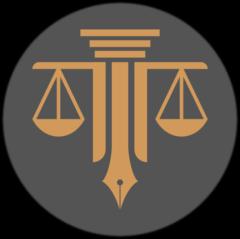Activity
Mon
Wed
Fri
Sun
Nov
Dec
Jan
Feb
Mar
Apr
May
Jun
Jul
Aug
Sep
What is this?
Less
More
Memberships
LawGeeks.Org
201 members • $19/m
Last Chance Gulch
327 members • $19/m
Bully Bundlers.
1.4k members • Free
2 contributions to LawGeeks.Org
Just Released: Civil Rights 101: Your Litigation Starter Kit
Dear Members, I'm excited to announce the release of our newest educational resource: "Civil Rights 101: Your Litigation Starter Kit" designed specifically for those seeking to understand and navigate the complex landscape of civil rights litigation. This concise handbook provides a foundational education covering civil rights that we all should have had by the time we reached adulthood. What This Educational Resource Offers: This structured handbook provides an accessible framework for understanding civil rights litigation concepts: - Historical Context: An examination of § 1983's development from its Reconstruction-era origins to its current role in constitutional enforcement - Case Assessment Concepts: Practical frameworks for evaluating potential claims, identifying constitutional violations, and understanding defendant selection considerations - Jurisdictional Information: Clear explanation of federal versus state court considerations with procedural requirements and venue selection principles - Complaint Drafting Guidance: Language approaches and formatting suggestions that focus on constitutional violations while addressing potential immunity defenses - Liability Frameworks: Explanations of individual, supervisory, municipal, and conspiracy liability theories in the civil rights context - Immunity Defense Concepts: Educational overview of qualified immunity, judicial immunity, and sovereign immunity defenses, including relevant exceptions Additional Learning Resources: The guide also includes: - Examples of constitutional claim language for various constitutional provisions - Overview of documentation considerations in civil rights cases - Explanation of burden-shifting concepts in civil rights litigation - Information about pro se litigation standards when proceeding without counsel This educational resource is designed to help you understand the landscape of civil rights litigation whether you're interested in excessive force cases, search and seizure issues, free speech considerations, or due process concepts.
Jean Keating's Cracking The Code
I have been doing more research on our prison system via the internet and have found out some interesting things, regarding what is really going on in the courtroom. The court is looking for an acceptance and acceptor under 3-410 of the U.C.C. as the Principal has the primary obligation to pay or discharge any instrument presented for acceptance. Since they are presenting a Bill of Exchange [indictment] for acceptance. This is called an acceptance for honor, which involves a negotiable instrument especially a bill of exchange [indictment] that has been accepted for payment. The complaint, information, or indictment is a three party Draft, Commercial paper, or Bill of Exchange under Article 3 of the U.C.C. The Grand Jury Foreman is the Drawer or Maker of the Indictment by his signature, the Defendant/Debtor or Straw man is the Drawee and the State is the Payee and the live man is the Payor. What they are doing in the courtroom is all commercial, this is in conformity to 27 CFR 72.11, where it says all crimes are commercial. What the judge and prosecutor are doing in the courtroom is making a commercial presentment under section 3-501 (1) "Unless excused (section 3-511) presentment is necessary to charge secondary parties as follows": (a) Presentment for acceptance is necessary to charge the drawer and endorsers of a draft where the draft so provides, or is payable elsewhere than at the residence or place of business of the Drawee, or its date of payment depends upon such presentment. The holder may at his option present for acceptance any other draft payable at a stated date; (b) Presentment for payment is necessary to charge any endorser; (c) in the case of any drawer, the acceptor of a draft payable at a bank or the maker of a note payable at a bank, presentment for payment is necessary, but failure to make presentment discharges such drawer, acceptor or maker only as stated in section 3-502 (1)(B). If you don't accept the charge or presentment you are in dishonor for non acceptance under 3-505 of the U.C.C. (c) and 3-501 (2) (a), (b). Acceptance is the drawer's signed engagement to honor the draft as presented. It must be written on the draft, and may consist of his signature alone. It becomes operative when completed by delivery or notification 3-410 of the U.C.C. You are the fiduciary trustee of the straw man which is a Cesti Que Trust; in this capacity you have the responsibility to discharge all his debts, by operation of law.
1-2 of 2
@roke-mafnas-2337
From the island of Guam - Learning to be free as our father intended
Active 7d ago
Joined Aug 6, 2025


